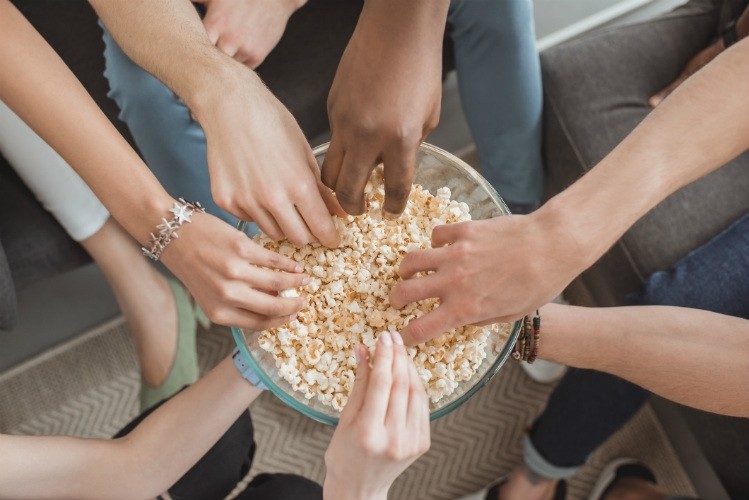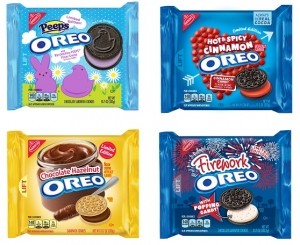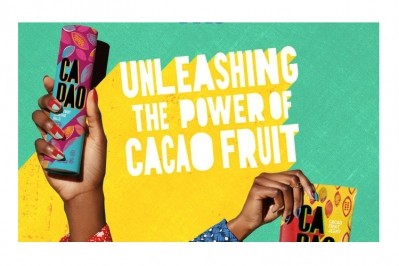Mondelēz roots out consumer devotion to snacks in first-ever global report

Six in 10 adults around the world prefer small meals (versus the standard three large ones) and admit they could not ‘imagine their lives without snacks,’ according to the report. For about half of consumers overall and 60% of millennials, snacks better suit their lifestyles. And two-thirds of respondents said they snack around the same time every day.
The report focuses not just on when or how people snack but also on why they snack. Nearly three-quarters of consumers divulged that snacking helps them get through the day and provides ‘an essential break in busy days.’
That sentiment rings even truer for millennials, with eight in 10 citing snacking as a chance to slow down.
Notably, just over half of consumers look forward to their snacks more than their meals, and six in 10 view snacks as personal and meals as a means of satisfying others.
Survey background
Mondelēz enlisted The Harris Poll for the online survey of more than 6,000 consumers over the age of 18, conducted online for 12 days in September. It reached a dozen countries, weighted evenly between developed and emerging markets, including the US, Canada, Mexico and Brazil in North and South America; France, Germany and the UK in Europe; Australia; plus Russia, China, Indonesia and Indonesia in Asia.
A third of respondents were millennials (ages 23-38), while boomers (ages 55-73) and Gen X (ages 39-54) comprised an additional two quarters. Consumers aged 18 to 22 numbered about 600, and just over 100 people over the age of 75 participated.
Why Mondelēz wants to know more about why people snack
The Global Citizens of Snacking Report stems from Mondelēz’s 2018 pledge to give consumers access to ‘the right snacks made well.’
For the snacking giant, it represents “yet another way we’re step changing our understanding of consumers’ busy lives and how our brands – both global and local – can play an important role,” said CMO Martin Renaud.
Many consumers hold a soft spot for iconic brands, whether that’s Oreo in the US, Lu biscuits in France and Benelux, or Dirol gum in Russia.
“Ensuring our brands remain relevant means recognizing that one-size-fits-all no longer works with consumers who want authenticity, meaning-for-me and local connections,” added Renaud.
According to the survey, three-quarters of consumers fondly recall childhood memories of sharing snacks with their parents, and returning to them today stirs plenty of nostalgia. Of parents surveyed, about eight in 10 desire to pass on healthy snack traditions, childhood favorites and cultural snacking rituals.
Similarly, for 82% of millennials, snacks offer ‘a simple way to connect across cultures.’ This age group views food as integral to identity.
As Brigitte Wolf, who leads the company’s Snack Futures division, put it: “It’s a cultural connector, rooted in tradition and nostalgia and [the] ever-present need for sustenance for body and mind… and for younger generations, snacking addresses our wanderlust by allowing within-reach experiences of cultures other than our own.”
Occasional indulgence and the demand for functional snacks
Three-quarters of consumers in the Mondelēz survey admitted they would sacrifice diet goals to share their favorite snack with a loved one.
Generally though, consumers agree indulgent snacks have a time and place (77% to be exact). Snacks can pamper, comfort, energize and relax – and control hunger pangs, according to the report, where 71% of consumers snack for that very reason. In developed regions, that choice is higher (eight in 10) in developed regions.
Looking to a snack-filled future, Mondelēz found nearly half of consumers want snacks to become more functional and more personalized to specific nutrition needs. The company – which considers itself the world’s largest snack maker – wants consumers to snack freely, without regret for their own wellbeing or that of the planet, according to Christine Montenegro McGrath, chief of global impact, sustainability and wellbeing.
As part of that trend, Mondelēz has pledged to cut sugar in its Cadbury Dairy Milk bars (which it already has in the UK and India) and increase the amount of products in portion-controlled packs by 2025. A consumer-first mentality and promotion of 'mindful snacking' has boosted sales by more than 1% in the most recent quarter.
Added CEO Dirk Van de Put, “As the snacking market continues to grow globally, we’re living our purpose to empower people to snack right by constantly learning about the many different ways consumers around the world are snacking and evolving their relationship with food. We embrace the fact that snacking habits around the world are as diverse as the consumers who enjoy them.”














